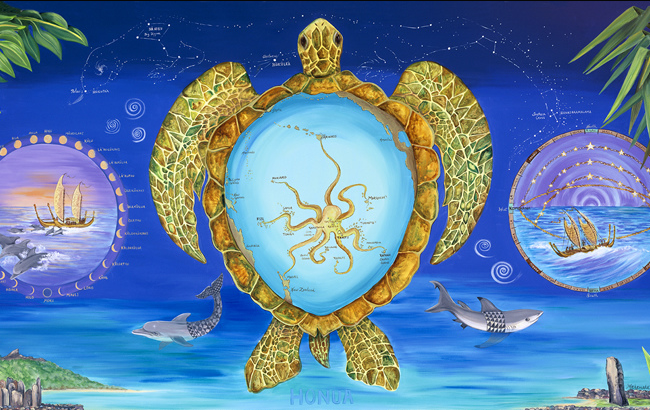
A more inclusive Polynesian Leaders Group
Leaders of Polynesia will meet in Auckland on August 30th for their third annual summit. In addition to the eight founding members of the group – Samoa, Tonga, Tuvalu, Cook Islands, Niue, American Samoa, French Polynesia and Tokelau – this year’s Polynesian Leaders Group (PLG) meeting will include Maori, Hawaiian, and Rapa Nui (Easter Island) leaders. The Pacific sub-regional group gave approval at last year’s meeting to the inclusion of representatives of these Polynesian indigenous peoples as full members.
This is a move that expands the confines of the group from just independent and self-governing island states to include distinct Polynesian peoples who may be part of a larger nation state like the Maori of New Zealand or the Hawaiians of America’s 50th state.
Cook Islands Prime Minister Henry Puna, will be hosting the Auckland meeting. It is his second time. He hosted last year’s meeting in Rarotonga. Samoa’s Tuilaepa Sa’ilele in Apia hosted the inaugural meeting in 2011. The establishment of PLG completes the setting up independently of three sub-regional groupings in the Pacific region – the Melanesian Spearhead Group (MSG), the Micronesian Challenge, and the Polynesian Leaders Group.
There are common issues among the Polynesian islands and peoples that require collaborative action, issues such as shipping, telecommunications, trade, tourism, marine management, air services, dealing with common problems arising from climate change and environmental challenges; and of-course a number of social issues arising from migration, criminal activities, and big-power intrusion into Polynesia.
Mr. Tuilaepa last year told ABC Radio that dialogue among PLG leaders has been very necessary in helping find common solutions to issues such as communications. The connection of a marine cable between Tonga, Fiji, and Samoa is one of the examples of projects that make the existence of PLG important, so that discussions with donor partners may have meaningful outcomes. The Tonga–Fiji segment of this project is complete as of 21 August 2013.
Geography, history, and common ethnicity are only part of the “common-sense” reasons Polynesian leaders must dialogue with each other. As Mr. Puna reiterated in last year’s meeting: ‘The geographical proximity of the Polynesian island countries makes it sensible that… they be working together on issues such as cabling, ICT because virtually the cables run past the countries within the grouping. For example Niue would be very close to any cabling between Samoa and Tonga.’
Mr. Puna, who will chair the Auckland meeting, has already stated publicly that he is very pleased with progress since the first meeting of PLG on shipping. ‘Samoa,’ he says, ‘and the Cook Islands have been able to cooperate on shipping issues where Samoa has been able to provide very much needed assistance.’ These are the kinds of pragmatic issues PLG members hope will dominate their deliberations.
It is not a small thing that this year’s meeting is held in Auckland, being the biggest Polynesian city on earth. A largely Polynesian ‘nation’ of 300,000 islanders live in New Zealand, the vast majority of whom are in Auckland. They do not only need to be acknowledged, but they may need separate representation in PLG. If the Maoris, the indigenous people of New Zealand are represented on the PLG, then why not the Polynesian Pacific islanders of New Zealand? They may be able to help with the issues of the ‘homeland.’
The Pacific Island Forum will follow in Majuro, Marshall Islands on September 3-6. New Zealand’s Prime Minister John Key has offered the Polynesian leaders to accompany him on his plane from Auckland to Majuro. That is a very convenient and generous offer. But the Auckland meeting will need to take into account the fact that Maori is not only a full member of PLG, but also arguably the most financially powerful of any Polynesian group. That is, if all 56 tribes of Maori are represented and allowed full participation in the affairs of the Polynesian Leaders Group.
It is interesting that the main agenda of the Auckland meeting appears on the surface to focus on heritage issues rather than contemporary pragmatic issues, as a communiqué from Tonga’s Prime Minister’s office related: ‘The third PLG is expected to revive the Polynesian pride and heritage in the New Zealand Maori communities of Maori Iwi and the Office of the Hawaiian Affairs to engage their representatives in this year’s meeting.’
In the same communiqué, it is said that PLG ‘collectively seeks ways to safeguard the future of Polynesian people, cultures, traditions and that these values are honored and protected.’ One would reason whether more important practical issues like the effects of climate change, sea transport and air services, inter-island trade, dealing with natural disasters, etc. would have been more appropriate for PLG to focus on. But true to Polynesian culture, what the meeting will focus on may be different from what is publicized.
Being the great orators of the Pacific, Polynesian leaders may be more at peace with abstract subject matters such as culture, traditions, and values. These are matters that are less divisive, but that does not mean they will not come to grips with life and death issues affecting people’s daily lives. The Tuvaluans and Tokelauans have plenty to say on this. Even the Tongans talk of ‘sinking islands’ as a result climate change.
Tonga’s perception of what PLG is all about may provide a balancing act, as this August 13 release from the Prime Minister’s Office state: ‘The PLG meeting has provided a platform for dialogue and cooperation on regional issues of sustainable economic prosperity, observation of democratic values and independence to working together in the wide ranges of fields from education, transport, trade and investment to environmental conservation and climate change mitigation for Polynesian states.’

